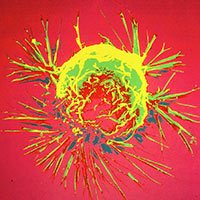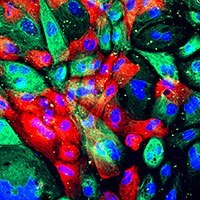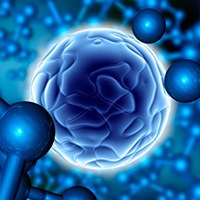Proteostasis (Protein Homeostasis) Scientific Interest Group
The Proteostasis SIG (PSIG) provides a forum to facilitate interaction, communication and collaboration among researches working on different areas of the Proteostasis Network (PN) in the NIH intramural community. Proteostasis (protein homeostasis) is essential for cell health, viability, adaptation to environmental challenges and ultimately, life. Derailed proteostasis leads to protein misfolding and aggregation that is the underlying origin of many devastating human disorders including cancer, neurodegenerative diseases, diabetes, cystic fibrosis, alcoholic liver disease, cataract, cardiomyopathy, immune problems, aging and other chronic maladies. The Proteostasis Network (PN) supports protein health by proper protein synthesis, folding, trafficking and disposal through its cardinal components the Heat Shock Response (HSR), the Unfolded Protein Response (UPR), the Ubiquitin-Proteasome System (UPS), and autophagy.
Deciphering the principal laws of the Proteostasis Network (PN) is critically important in understanding human health and disease that spans over the interest of basically all NIH ICs. Planned activities include a bi-monthly seminar series by NIH intramural investigators and occasional extramural guests working on different areas of proteostasis. Special one-day symposia are also planned to discuss emerging trends and topics of the field on a biennial basis.
Mailing List
To join the Proteostasis (Protein Homeostasis) Scientific Interest Group mailing list, please visit the Proteostasis (Protein Homeostasis) Scientific Interest Group Listserv home page, then click the “Subscribe or Unsubscribe” link in the right sidebar.
Chairs
- Len Neckers, Ph.D., NCI/CCR
- Andras Orosz, Ph.D., NIAAA
Advisors
- Toren Finkel, M.D., Ph.D., NHLBI
- Richard Youle, Ph.D., NINDS
Scientific Focus Areas



Molecular Biology and Biochemistry
View SIGs in Molecular Biology and Biochemistry
Learn more about Molecular Biology and Biochemistry in the IRP
This page was last updated on Thursday, August 12, 2021